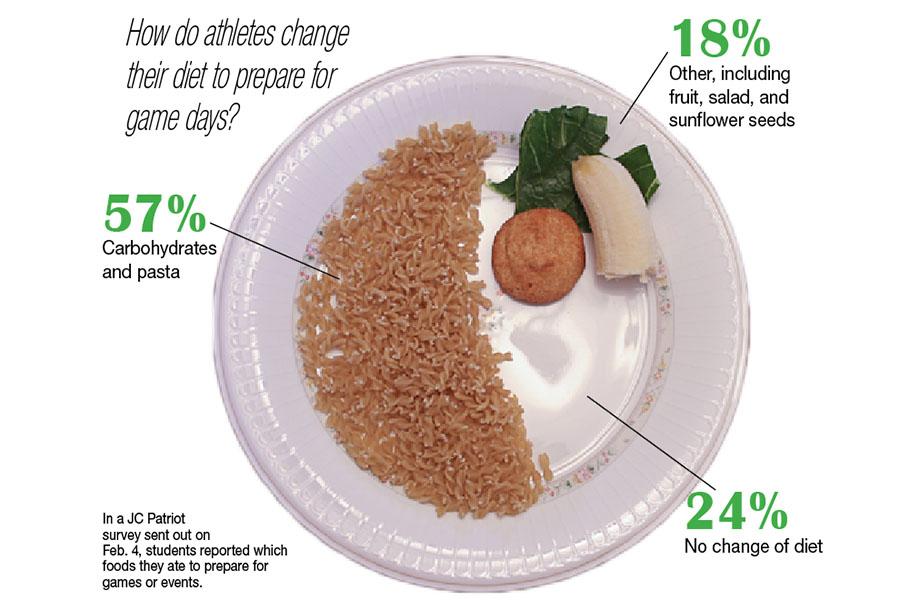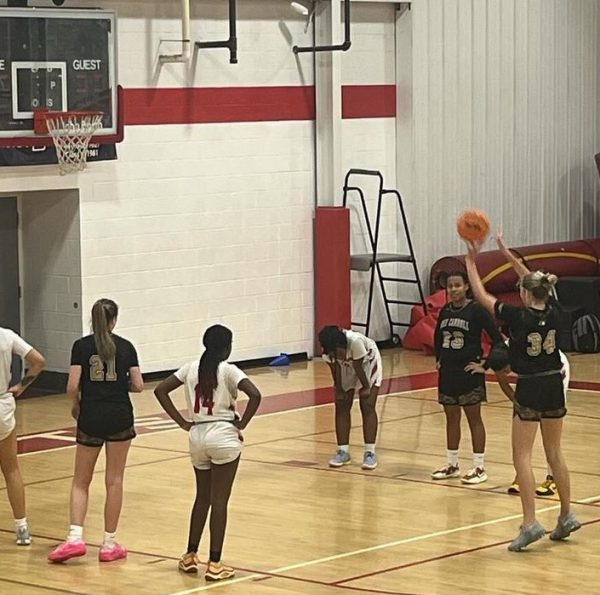Does performance depend on diet?
February 25, 2014
Sophomore Rob Flynn fills up his plate with loads of spaghetti and pours water into his cup. As a runner and swimmer, Flynn has his diet all planned out.
“[I eat] loads of pasta with cheese and meat sauce before and after swim practice. I drink a liter of water the morning before every [running] meet. I stay away from candy, [and] I don’t eat any greasy things because that gives me cramps,” Flynn said.
According to biology teacher and lacrosse coach Kyle Leppert, athletes’ stomachs may cramp up “when athletes eat too heavily too close to game time because [the food] hasn’t completely digested, [and] the body’s trying to prepare for exercise.”
Instead, Leppert recommends having “a good meal about three hours beforehand,” with “little snacks after that.”
Sophomore soccer player Daniel Bonsack agrees, and he has “a Cliff Bar before every soccer game, [which] helps.”
Many athletes also eat healthy the day before a game. Junior Drew Nori eats pasta or chicken before his soccer games, and junior softball player Amanda Brannan eats pasta or steak and vegetables.
Track and cross country coach Robert Torres believes that athletes “should be eating as healthy as possible and avoiding junk food in excess.”
According to Torres, “as long as you are exercising on a regular basis, you can afford to eat a lot of carbs. When you get older and stop exercising regularly is [when] eating too many carbs causes too much fat.”
Dehydration can also be an issue for performance.
“The hope is [that] you’re drinking water throughout the day and staying hydrated,” Leppert said. “What you don’t want to do is make up for being dehydrated before or during a game or competition because at that point it’s usually too late to get it where you need it. [This is] another thing that can slow people down and lead to cramps.”
Many athletes recognize the importance of staying hydrated.
“It’s important to stay hydrated by drinking water, especially [when it’s warm outside], because it affects how well I feel and run,” junior cross country and track runner Erin Cadden said.
Water is not the only beverage consumed, however. Sophomore Cara Wolfarth drinks “a lot of water and Gatorade.”
According to Leppert, Gatorade is good as long as it is not used “for the bulk of our energy.” He does not recommend energy drinks, however, as “they take the place of good nutrition that gives proper fuel or tend to agitate a person’s system.”
Additionally, Torres says that he has not “heard any good things about these drinks when it comes to athletes.”
However, not all athletes follow these guidelines. Sophomore and lacrosse player Anya McSorley believes that her energy is not affected by food and “it doesn’t matter what I eat before a game.”
Junior Ashley Hunter agrees. “Game performance is all mental and should not be based on the foods you eat or the rituals that you perform.”
Elizabeth Driver is a Sports Editor for The Patriot and jcpatriot.com.










